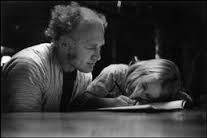I felt like you can write forever but you have a short time to raise a family. And I think a family is a lot more important than writing. Ken Kesey
In my previous post, I began to recount the efforts of author Peter Lance to self-promote his first novel even though he had a publisher, a major publisher, in Berkley Publishing Group. The personal time, effort and money put into the promotional efforts by Mr. Lance are monumental. He was determined that, “First Degree Burn” not get lost in the mass of 52,000 books published each year.
“My publicist hasn’t called me back in five weeks,” he says.
The question at hand is whether it is enough to just have a publisher. Or, in a literary world where only bestsellers are heavily promoted, is it necessary to pitch in and do what you can to improve the odds of your book getting the recognition you think it deserves.
Thus far Mr. Lance has spent $1,000 to print and bind 50 copies of the galleys to send to friends and colleagues; he mailed the first eight chapters to 250 mystery bookstores at $2,600 for printing and $562.50 for shipping; he bought 1,200 copies of the book from Berkley at 40% off the cover price at a cost of $4,032; he took 350 copies to a national fire convention spending $1,200 for a booth, $350 for furniture and $250 for a phone. He ran ads in two national fire industry magazines spending $5,900 including the design work; he set up toll-free phone lines for another $850.
And while we’re talking about books and money and bestsellers let me insert a piece of shameless commerce by saying you can download a copy of my books, “One Cried Murder” and “Exit Marks the Spot” at amazon.com/author/dcwall. Thank you.
The story is a reprint from the Wall Street Journal written by staff reporter, John Lippman. And it continues here:
The novel has won fans among firefighters, including Louis Garcia, New York’s deputy chief fire marshal. “Fire marshals have been overlooked as a member of the police community,” he says. “People don’t realize it, but we crack a lot of big cases.”
Next, Mr. Lance spent $4,000 for a Web site (www.firstdegreeburn.com). It receives about 150 “hits,” or computer visits, daily. He also hired a $100-a-day assistant, a former TV co-worker, to help compile lists of chain bookstores, write letters and schedule promotional appearances. His helper has cost him about $4,800.
Getting a foot in the door of chain bookstores was tricky. Many retail outlets, such as Barnes & Noble Inc. and Borders Group Inc., get marching orders from regional offices and are reluctant to have obscure writers in to sign books. So Mr. Lance sent 60 signed copies to outlets in California. Cost: $180. He spent $105 to print 500 copies of Berkley’s press release in flame red, and another $600 for 100 posters of the cover of “First Degree Burn.”
That campaign worked pretty well; he picked up a few signing engagements in California, then expanded his tour, hitting 70 stores in six other states and in Washington, D.C. Along the way, he dropped $3,000 for plane tickets and another $2,200 for hotels and rented cars. “I used up all my Marriott Rewards program points,” he says.
By mid-June, Mr. Lance says he still hadn’t received 900 of the 1,200 books he ordered the month before. Worse, he showed up at a lot of bookstore signings only to find that there were no books to sign. So Mr. Lance phoned the printer, Offset Paperback Manufacturers Inc. in Dallas, Pa. Soon the books he ordered were in the mail.
Mr. Lance then assembled a list of mystery-book critics by contacting 3,000 members of DorothyL (after the writer Dorothy L. Sayers), another mystery buffs’ Web site. Respondents sent him names of 44 critics for small mystery magazines and newsletters. His assistant called major newspapers in the U.S. and Britain and came up with another 150 critics’ names. Each was sent a copy, at a total cost of $450.
Now Mr. Lance is going after libraries. With a list of 650 library buyers that he got from the Mystery Writers of America, he sent out more pitches, at $1.55 a pitch. Shelley Ekeroth, fiction material evaluator for the 88-branch Los Angeles County Public Library, says she “enjoyed it immensely” and is recommending that local branches buy it.
Has all this expensive, time-consuming effort paid off? As a short-term business proposition, no. Mr. Lance will bring in roughly $14,000 in net royalties if he sells 50,000 books — for a loss of roughly $20,000 on his marketing investment. Also, he says, “It’s been hard on my day job.” Mr. Lance says he earns about $25,000 for a TV script, and that has got to be easy money compared with flogging his novel.
But Mr. Lance hopes sales will be sufficient not only to trigger a second printing but also to enhance his value for his next book. And if he garners a movie deal for “First Degree Burn,” he says, “that changes the whole equation.” Already he has been in talks, as they say in Hollywood.
Meanwhile, Mr. Lance has begun to write his second novel, which has the working title “Spontaneous Combustion.” No word yet on who will publish it.
………………………………….
A recent check of Mr. Lance’s Amazon author page shows he currently has seven books available. So, at least we know that his experience with a first publisher hasn’t kept him from writing, a lot. The moral of the story, if there is one, perhaps tells us that getting a manuscript accepted isn’t the end of the rainbow. The effort still has to continue. It really is hard work, Batman. And it may be never ending. Happy writing.

